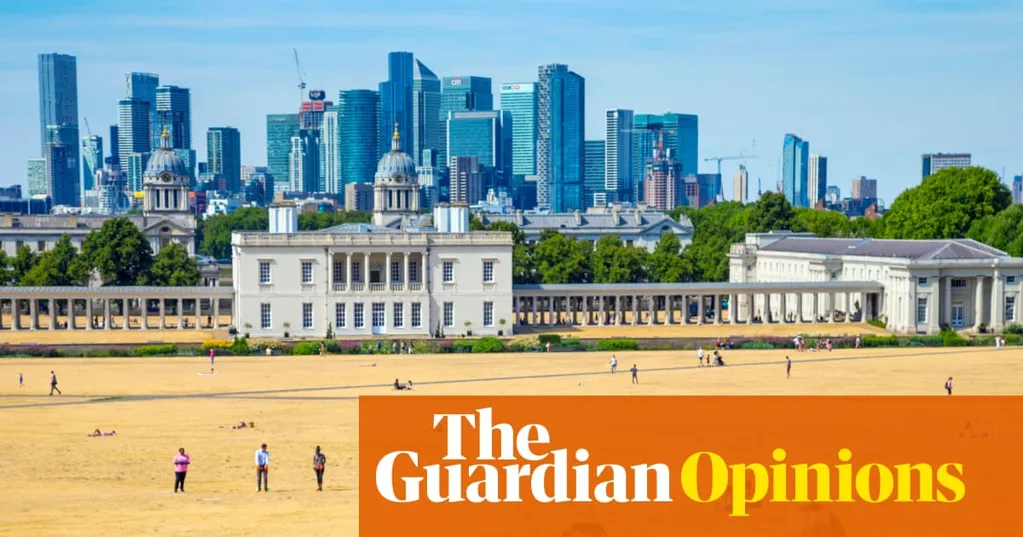A future of extreme heatwaves, drought and collapsing habitats awaits if we continue to ignore the danger signs.
What does British summertime mean to you? Blackberries? Picnics? Festivals? Ticks? This summer has been the hottest on record in the UK. As human-caused climate breakdown intensifies, the outdoor areas we spend time in are changing - and so, too, are our relationships with the land and the ecosystems we live in.
My home is in the south of England, near beautiful woodlands. Since moving there in 2016, the number of ticks my family has picked up in the woods has increased each year, but this summer has been astonishing. For a few weeks, our four-year-old came home from nursery with a tick almost every day. I've had many: some tiny nymphal ones that could be easily missed. We spend time in Scotland, too, and find ticks often when we go there now.
We've become adept at removing the blighters with a special tool, protecting ourselves and checking the kids - but there are dangers. Lyme disease is increasing, and the potentially deadly tick-borne encephalitis has also been found in the UK. In the US, there are 500,000 new cases of Lyme disease per year. Sometimes I wonder if it's only a matter of time before the risks of spending time in these woods - beloved spaces, like a second home - could outweigh the benefits.
Last week, we went down to Kimmeridge Bay in Dorset. The weather was glorious; we saw pale blue cushion starfish and crabs, shrimps and fossils; but the surrounding yellowed, parched fields were eerie and a reminder of the uncanniness of this moment. I felt a jolt of solastalgia, a word coined by the Australian philosopher Glenn Albrecht to describe the "distress that is produced by environmental change impacting on people while they are directly connected to their home environment".
It's a complex experience, living in this time of climate crisis, with a human brain that is short-termist, generally optimistic and present-oriented. Maybe the fields were as yellow and dead at the end of August when I was a child? Maybe I imagine that we used to see more swifts? Or butterflies? Or hedgehogs? (This is shifting baseline syndrome, and the statistics show both consistent declines of species and hotter summers.)
Day to day, our summer has been good because we've been able to be outside and enjoy the sunshine. Yes, a tree in our garden has died, drought possibly a factor. The frogs didn't survive, perhaps because the pond dried up. I don't swim as much in the local rivers - an activity I have found highly therapeutic - because of pollution levels. I'm getting used to the feeling of solastalgia.
But it's become harder to get used to how very hot it has been in the past few years. I hated the extreme heatwave of 2022, where temperatures reached 40C for the first time (since records began) in the UK. With a baby and young children at home, we simply couldn't go outside. And when we could, everything was dead and quiet. It was depressing and frightening.
With the extreme heat projected in the coming decades, going outside in the summer will be harder: festivals and outdoor sports events will be too dangerous; opportunities for people to unwind and relax in nature may decrease.
The impacts of climate change on the British summer will be unequal across class, race and socioeconomic lines. More deprived areas are less likely to have tree cover for shade. The homes of lower-income families, renters, those with children and ethnic minority households are more likely to overheat.
And the countries most vulnerable to severe climate-related breakdown - those in the global south, who are not responsible for climate change caused by human activity - are facing summers projected to be much more deadly and violent than those in the northern hemisphere.
But in the UK's new heatwaves and drought, the health of ecosystems - in other words, life - is threatened. Wildlife can become dehydrated and struggle to find food and water. Trees may die; plants may reduce flowering and seed production. Without food plants caterpillars can't survive, which means fewer butterflies and moths. If fruit ripens early, it may not be around for winter migrants such as fieldfares or redwings, or for hibernating species such as dormice. High temperatures and falling water levels threaten freshwater ecosystems by shrinking habitats and concentrating levels of pollutants and sewage.
When I approached our wildlife and nature NGOs about how the British summertime is playing out with the living world, they were keen to tell me what we can do to help our non-human neighbours. Suggestions included: increasing moisture-retaining wildflowers in public spaces and road verges; watering trees; keeping ponds topped up; leaving out shallow dishes of water with pebbles in them so bees and butterflies can safely drink too; letting areas of grass grow long; creating shade with log piles.
We know what the government and business need to do. Stop burning fossil fuels. Our leaders are going for economic growth at any cost, even if any cost means the collapse of the precious web of life on Earth as we know it. How many more record-breaking summers will we ignore?
